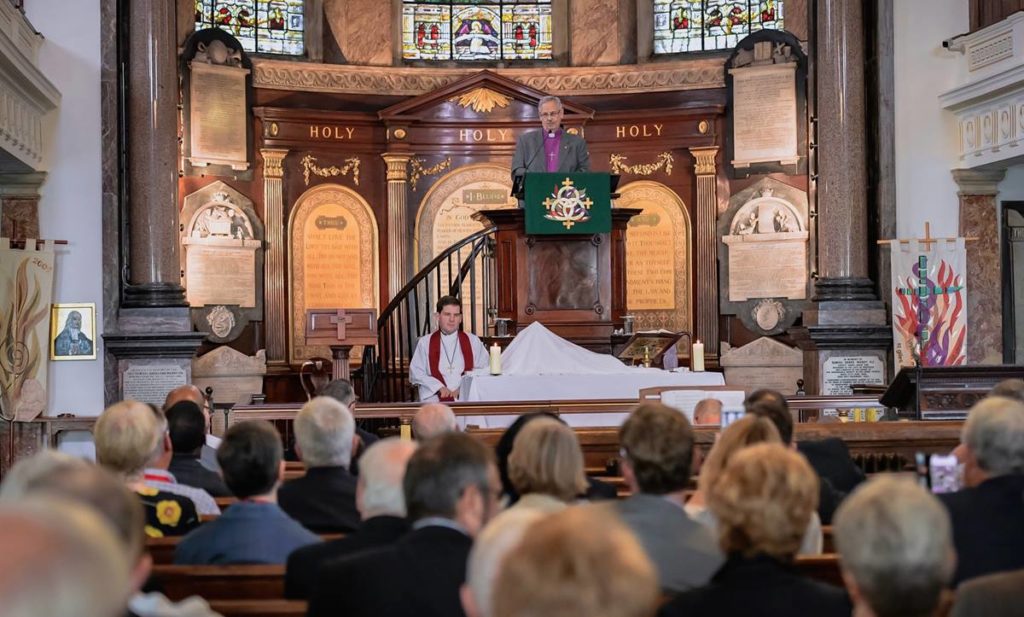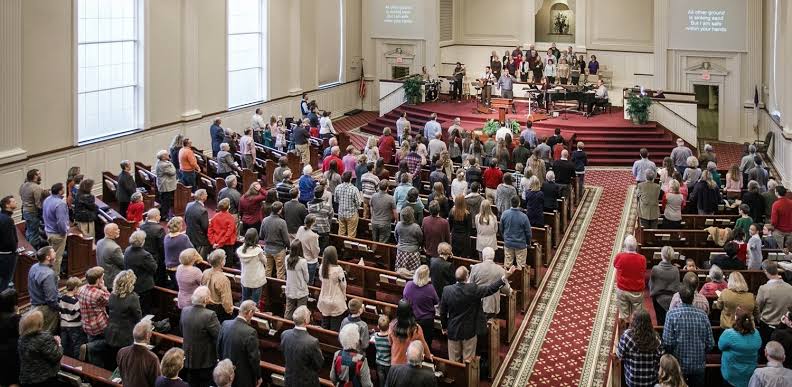Who Are Methodists?
Methodism also referred to as Methodist movement is a group of historically related denominations of protestant Christianity which derive their doctrine of practice and belief from the life and teachings of John Wesley. Wesleyan theology which is upheld by the Methodist Churches focuses on sanctification and the effect of faith on the character of a Christian.
Methodism originated as a revival movement within the 18th-centuary Church of England and became a separate denomination after Wesley’s death. The movement spread throughout the British Empire, the United States and beyond because of vigorous missionary work, today claiming approximately 100 million adherents worldwide.
Methodists teach that Jesus, the Son of God, died for all humanity and that salvation is available for all. This teaching rejects the Calvanist (reformation teachings of John Calvin) position that God has pre-ordained the salvation of a select group of people.
In addition to evangelism, Methodism emphasizes charity and support for the sick, the poor and the afflicted through the works of mercy. These ideals collectively known as social gospel, are put into practice by the establishment of hospitals, orphanages, soup kitchens and schools to follow Christ’s command to spread the good news and serve all people.

What You Need To Know About Methodist
- Methodists believe in God, the Bible as the word of God and teachings of Jesus whom they accept as the savior of humanity.
- Methodism is known for its rich musical tradition, and Charles Wesley was instrumental in writing much of the hymnody of the Methodist church.
- Methodist baptizes infants, youth and adults. They are not discriminative about an individual’s age and mental maturity.
- Methodist performs baptism by immersion, sprinkling and spilling.
- Methodists practice open communion whereby communion is welcome to all.
- Methodists have a system of Episcopal Hierarchy of governance.
- Methodists give the bishops the authority to assign pastors to congregations.
- Methodists are generally broad in their beliefs. Some can be fundamentalists while others are liberals who base their faith on tradition, personal experience and reason.
- Methodists believe that it is the person’s choice to be saved and one can fall from grace by not following the teachings and therefore losing salvation.
- Women are also ordained to be pastors in Methodist church.
- Methodist congregations are closely linked to each other, there is no autonomy when it comes to governance.
- All Methodists hold their services and worship on Sunday
Who Are Baptists?
Modern Baptist churches trace their history to the English Separatist movement in the 1600s, the centaury after the rise of the original protestant denominations. Many people assume that Baptists got their name from John the Baptists. This is however not the case. Like most religious groups, Baptists were named by their opponents. The name comes from the Baptists practice of immersion.
Baptists do not have a central governing authority and Baptists beliefs are not completely consistent from one Baptist church to another. However, Baptists do hold some common beliefs among almost all Baptist churches.
Some of the beliefs include beliefs about one God, the virgin birth, the impeccability, miracles, vicarious atoning death, burial and bodily resurrection of Christ, the need for salvation, divine grace, the church, the kingdom of God, last things, evangelism and mission.
Although Baptists share the basic beliefs of most Protestants, however, to Baptists only believers should be baptized and that should be done by immersion rather than by sprinkling or pouring of water. Diverse from their beginning, those identifying as Baptists today differ widely from one another in what they believe, how they worship, their attitudes towards other Christians and their understanding of what is important in Christian discipleship.

What You Need To Know About Baptists
- Baptists believe in God, the Bible as the word of God and teachings of Jesus whom they accept as the savior of humanity.
- Baptists have a long history and rich heritage of congregational songs. The hymns Baptists have sung and the books from which they have sung them have been shaping forces for Baptists theology, worship and piety.
- Baptist baptizes adults and youth who are capable of understanding faith. They do not perform baptisms of infants.
- Baptists perform baptism only by immersion.
- Baptists carry out closed communions where the table is only open for baptized church members.
- Baptists have congressional independence.
- The Baptists congregation chooses their own pastors.
- Baptists tend to be stricter and largely fundamentalists. They consider bible to be beyond reproach.
- Baptists maintain the doctrine of the ‘perseverance of saints’ where an expression of once saved, always saved prevails.
- Only male are ordained to be pastors and teachers of the gospel.
- Baptists’ local churches are autonomous when it comes to governance.
- Most Baptists hold their services and worship on Sunday. However, there is a group referred to as Seventh Day Baptists who gather and worship on the seventh day of the week on Saturday.
Also Read: Difference Between Sunni And Shia Muslim
Difference Between Methodists And Baptists In Tabular Form
| BASIS OF COMPARISON | METHODISTS | BAPTISTS |
| Belief | Methodists believe in God, the Bible as the word of God and teachings of Jesus whom they accept as the savior of humanity. | Baptists believe in God, the Bible as the word of God and teachings of Jesus whom they accept as the savior of humanity. |
| Hymnody | Methodism is known for its rich musical tradition, and Charles Wesley was instrumental in writing much of the hymnody of the Methodist church. | Baptists have a long history and rich heritage of congregational songs. The hymns Baptists have sung and the books from which they have sung them have been shaping forces for Baptists theology, worship and piety. |
| Baptism | Methodist baptizes infants, youth and adults. They are not discriminative about an individual’s age and mental maturity. | Baptist baptizes adults and youth who are capable of understanding faith. They do not perform baptisms of infants. |
| Method Of Baptism | Methodists perform baptism by immersion, sprinkling and spilling. | Baptists perform baptism only by immersion. |
| Communion | Methodists practice open communion whereby communion is welcome to all. | Baptists carry out closed communions where the table is only open for baptized church members. |
| Congressional Independence | Methodists have a system of Episcopal Hierarchy of governance. | Baptists have congressional independence. |
| Pastors | Methodists give the bishops the authority to assign pastors to congregations. | The Baptists congregation chooses their own pastors. |
| Fundamentalism | Methodists are generally broad in their beliefs. Some can be fundamentalists while others are liberals who base their faith on tradition, personal experience and reason. | Baptists tend to be stricter and largely fundamentalists. They consider bible to be beyond reproach. |
| Doctrine | Methodists believe that it is the person’s choice to be saved and one can fall from grace by not following the teachings and therefore losing salvation. | Baptists maintain the doctrine of the ‘perseverance of saints’ where an expression of once saved, always saved prevails. |
| Ordination of Pastors | Women are also ordained to be pastors in Methodist church. | Only male are ordained to be pastors and teachers of the gospel. |
| Governance | Methodist congregations are closely linked to each other, there is no autonomy when it comes to governance. | Baptists’ local churches are autonomous when it comes to governance. |
| Sabbath | All Methodists hold their services and worship on Sunday | Most Baptists hold their services and worship on Sunday. However, there is a group referred to as Seventh Day Baptists who gather and worship on the seventh day of the week on Saturday. |
That iss a god tip especially tto those fresh to the blogosphere.
Simmple but very precise information… Thank you for sharing this
one. A mjst rad post!